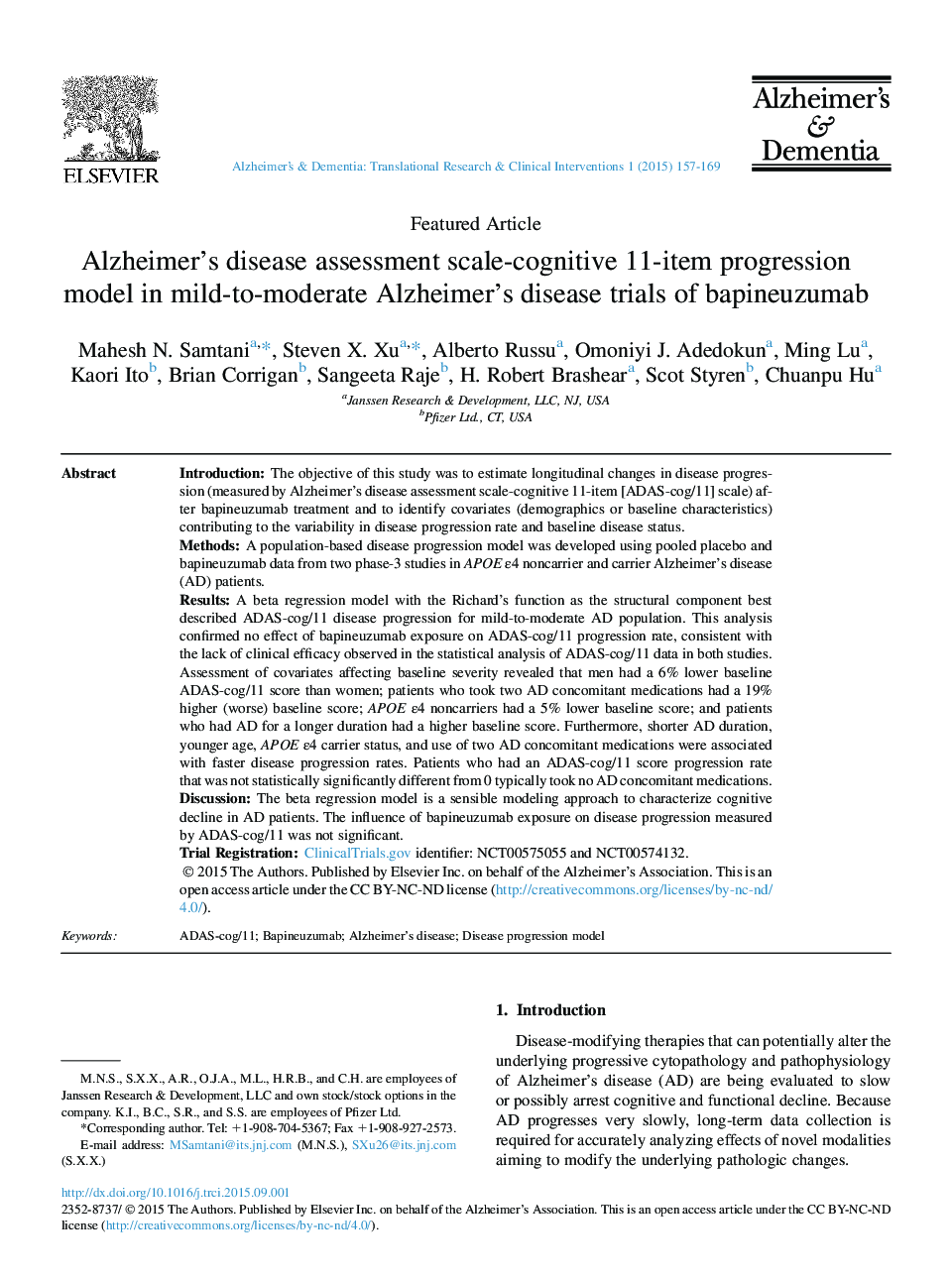| Article ID | Journal | Published Year | Pages | File Type |
|---|---|---|---|---|
| 3032111 | Alzheimer's & Dementia: Translational Research & Clinical Interventions | 2015 | 13 Pages |
IntroductionThe objective of this study was to estimate longitudinal changes in disease progression (measured by Alzheimer's disease assessment scale-cognitive 11-item [ADAS-cog/11] scale) after bapineuzumab treatment and to identify covariates (demographics or baseline characteristics) contributing to the variability in disease progression rate and baseline disease status.MethodsA population-based disease progression model was developed using pooled placebo and bapineuzumab data from two phase-3 studies in APOE ε4 noncarrier and carrier Alzheimer's disease (AD) patients.ResultsA beta regression model with the Richard's function as the structural component best described ADAS-cog/11 disease progression for mild-to-moderate AD population. This analysis confirmed no effect of bapineuzumab exposure on ADAS-cog/11 progression rate, consistent with the lack of clinical efficacy observed in the statistical analysis of ADAS-cog/11 data in both studies. Assessment of covariates affecting baseline severity revealed that men had a 6% lower baseline ADAS-cog/11 score than women; patients who took two AD concomitant medications had a 19% higher (worse) baseline score; APOE ε4 noncarriers had a 5% lower baseline score; and patients who had AD for a longer duration had a higher baseline score. Furthermore, shorter AD duration, younger age, APOE ε4 carrier status, and use of two AD concomitant medications were associated with faster disease progression rates. Patients who had an ADAS-cog/11 score progression rate that was not statistically significantly different from 0 typically took no AD concomitant medications.DiscussionThe beta regression model is a sensible modeling approach to characterize cognitive decline in AD patients. The influence of bapineuzumab exposure on disease progression measured by ADAS-cog/11 was not significant.Trial RegistrationClinicalTrials.gov identifier: NCT00575055 and NCT00574132.
